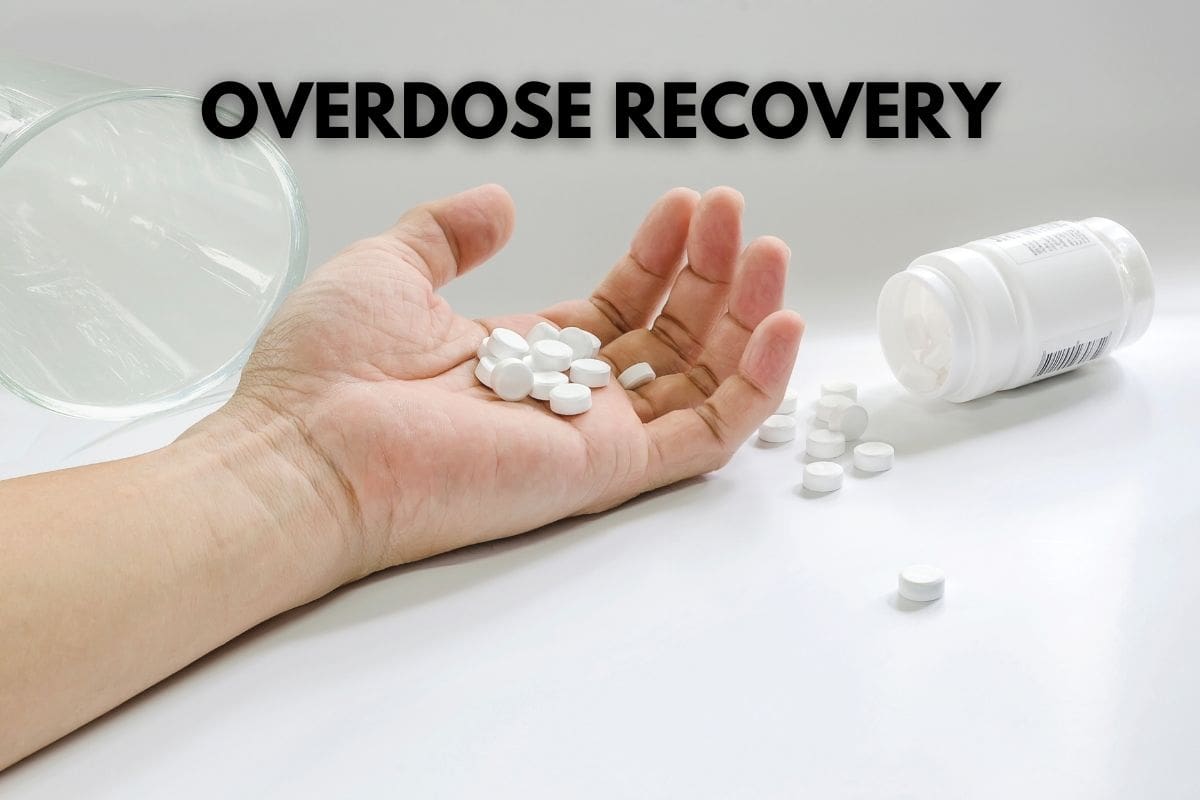A drug overdose can happen after someone takes too much of a drug. This can happen whether they consume over-the-counter, prescription, or illegal substances, and it can occur intentionally or accidentally. In 2019, there were 70,600 drug-involved overdose deaths in the United States. If you or a loved one is using drugs, it’s paramount to learn what to expect from an overdose, including how to react, the treatment course, and more.
How Long Do Overdose Symptoms Last?
The length of a drug overdose depends on various factors, including how quickly someone receives medical attention. For example, when someone experiences an opioid overdose, a shot of Naloxone can instantly reverse the overdose effects. However, if someone overdoses on cocaine and falls into a coma, the effects will last longer.
In most cases, “how long do overdose symptoms last” refer to the long-term effects of an overdose. Some recoveries can be quick, while others suffer permanent damage. For example, in most cases, patients who have a drug overdose are more likely to:
- Struggle with mental health disorders
- Experience frequent overdoses
- Suffer brain injuries or brain damage
- Struggle with memory and concentration
- Experience diminished physical functioning
Signs of an Overdose
Different drugs produce different overdose symptoms. These are some of the most common overdose signs to expect from commonly abused drugs.
- Depressants: shallow breathing, clammy skin, weak pulse, coma, and potentially death.
- Hallucinogens: psychotic episodes, hallucinations, agitation, and delirium tremens.
- Inhalants: loss of consciousness, arrhythmia, system depression, coma, and sudden death.
- Marijuana: drowsiness, vomiting, agitation, psychosis, unsteady gait, and tachycardia.
- Opioids: respiratory depression, unconsciousness, clammy skin, bluish skin, constricted pupils, and sudden respiratory arrest.
- Stimulants: hypertension, agitation, hallucinations, seizures, cardiovascular symptoms, and arrhythmia.
How Long Does It Take to Recover From an Overdose?
In most cases, people can effectively recover from an overdose within a few days or weeks. Ultimately, three factors determine how long it will take someone to recover from an overdose:
- The type of drug used: different drugs result in various overdose symptoms. More potent drugs may result in more severe effects that take longer to recover from, mainly if they cause semi-permanent damage, such as a brain injury or liver damage.
- The dosage: more potent doses of specific drugs can cause overdose symptoms to occur faster. For example, fentanyl acts very quickly in the body and can cause shallow breathing faster than other drugs, and therefore there’s a higher chance of overdose and more severe side effects.
- History of abuse: accidental overdoses from misusing prescription drugs are often easily reverted. However, for someone with a history of abuse, overdose usually involves poly-substance abuse and combining different addictive drugs that can cause stronger overdose symptoms and be fatal.
Drug Overdose Treatment
After an overdose, it’s essential to treat any consequential medical issues. Memory loss, cardiac problems, and gastrointestinal problems that require ongoing medical care are common. If the overdose were intentional, the person would receive a mental health evaluation to receive psychiatric care as needed. In some states, providers can request a person to commit to treatment, especially if they’re a danger to themselves.
Visit a Hospital
If you suspect an overdose, call 911 immediately. It’s paramount to receive emergency medical attention to address all the symptoms. If you or someone you know is using opioids, for example, talk to your doctor about Naloxone, an FDA-approved medication to reverse the effects of opioid overdose. And always visit a hospital to receive the appropriate treatment and medical care to prevent permanent damage.
Consider Substance Abuse Treatment
An overdose may be the result of a substance use disorder. The most effective way to treat overdose in these cases is to receive professional help. The best substance abuse programs use a combined effort of medications and behavioral therapies to treat addiction. Consider speaking with a substance abuse counselor to learn more about the different rehab programs.
Receive Medication-Assisted Treatment
Medication-assisted treatment (MAT) is a clinically-effective substance abuse treatment that works well with behavioral therapy. In this program, providers use FDA-approved medications, such as buprenorphine, naltrexone, and methadone to treat addiction. Other MAT medications include disulfiram, naltrexone, and acamprosate. These medications help treat overdose symptoms, control withdrawal signs and reduce cravings, thus reducing the likelihood of relapse.
Finding Help for Addiction
If you or someone you know is struggling with substance abuse, seek help near you. Overdose can be prevented when you begin to treat the addiction. Through detox, medication-assisted treatment programs, and ongoing behavioral therapy, patients can find long-lasting addiction recovery, significantly reducing their chances of overdose and relapse. Please know help is available. Contact The Freedom Center to find caring assistance for you or your loved one.
Sources:
https://www.drugabuse.gov/drug-topics/trends-statistics/overdose-death-rates

































